People who already went through a hurricane know about the hurricane preparedness checklist and how important this is to successfully survive such a wrath. This checklist should contain only the basic items one’s family needs to survive for a few days in a shelter, away from home.
Now, depending on your organizational skills, you may put together an actual list and stick it to the fridge or simply have a space where to deposit all the things you consider helpful in case of a natural disaster. Our main recommendation is to think very carefully about this and pack everything so your emergency kit is both light and filled with useful, life-saving items. We prepared for you a complete list of things to have in your Bug Out Bag list in this article.
When it comes to hurricanes, the key to survival is preparedness! If you are new to an area where hurricanes love to play catch, you may think that making a list and storing objects for an event that may or may not occur during the current year is a stupid thing to do. You can gather everything you need when there’s a storm alert. Well, here’s where you might be wrong: a hurricane is not waiting for anybody, it simply shows up. There are only a few minutes before you have to leave in case of evacuation and you won’t have time to search (even more, think!) for everything.
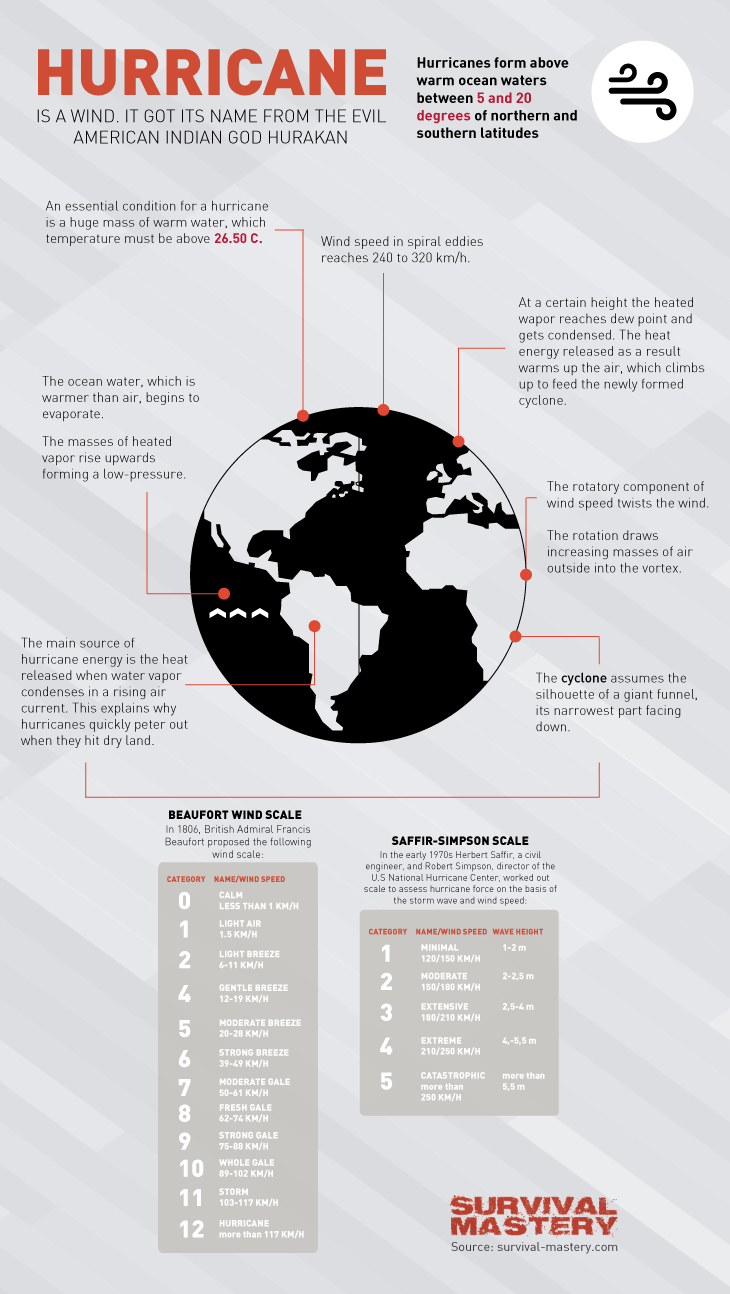
Hurricanes usually occur from June to November (in USA) and they hit the coastlines with powerful rain storms and surging waves. Even though they seem to stop at the coastline, the heavy rain also produces inland flooding increasing the disaster range. It really takes a lot of calm and good decision making in order to make sure that you and your family get to a hurricane shelter safe and sound. That’s why preparing for a hurricane in advance is always the best way to overcome a natural disaster of this magnitude.
Preparing for a hurricane –dos and don’ts
Why is hurricane preparation so important? There are authorities that can help you and the warning is usually issued with 36 hours before anything happens. It’s true, authorities try to do their best to warn and help the population reach a safe place before all hell breaks loose, but if you and your family are prepared and know what to do they can go and help someone else who is (maybe) in a lot more trouble.
To be able to help others, you need to be prepared very well by yourself first. We covered the steps to take in case of a disaster in our article about Disaster Preparedness and you can read all about how to get ready for the worse right here.
Hurricanes are preceded by panic, disorganization and total craziness and followed by suffering and losses. These are some pretty difficult situations that authorities have to put up with and it’s nice to try and make their job a little easier. And, at the end of the day, who doesn’t want to know that their family is prepared in case of an emergency situation?
Even though the warnings are issued with 48 to 36 hours before the hurricane strikes, the wind is already pretty strong and the rain starts to fall. Also there is no sure way of predicting what a hurricane might do. This is why it is very important to be prepared: knowledge is power and you definitely will want your family members to have that power. You shouldn’t let your family become a burden simply because you don’t believe in preparedness!
In order to help with your hurricane preparedness checklist we put together a few dos and don’ts that might prove very useful:
- Start preparing with a few weeks before the hurricane season.
- Check your old hurricane supplies and refresh the ones that need to. Check expiration dates on cans, first aid kits, juice boxes, etc.
- Don’t hide your emergency kit in a place that is hard to reach – you’ll need it in handy. If you don’t have an emergency kit already, take a look at our reviews and suggestions for best survival kits.
- Don’t take foods that need cooking with you. Canned and dried foods are the best solution.
- Build a plan and involve your family. This way they will understand it and they’ll know how to act in a difficult situation.
- Think about evacuation situation – where will you stay if you have to evacuate? Contact your friends and family and find out if they can host you.
- Discuss different scenarios with your family members. For example, what to do if you get separated and how to find each other. Check out our tips on how to set up an emergency communication plan to help you.
- Don’t overthink it. Create simple strategies that are easy to follow and understand.
- Stay informed. Teach your children which radio station to listen in order to get updates on the storm.
- Don’t wait until the last minute to buy hurricane supplies. In a crisis situation store shelves empty rapidly and you might be the one who didn’t make it in time to the store.
We know that this is a rather short list, compared to the seriousness of a hurricane, but it includes the basics. We also hope that it’s a wakeup call for people who live in hurricane affected areas. They need to realize that a hurricane is a very serious situation.
How to be completely prepared – hurricane supplies
When it comes to hurricane supplies it’s very easy to overdo things. If you don’t have your own shelter in the back yard, you might want to reorganize things before the evacuation order. You have to carry the supplies through bad weather and if you have small kids or pets with you, the problem increases in difficulty. Check out our article on emergency food storage for more information.
The main rule of supplying for a hurricane situation is: keep it simple and easy! Make sure you take only the basic necessary items and make sure you take enough to last for a few days. Hurricanes always arrive on time but they don’t like to live early.
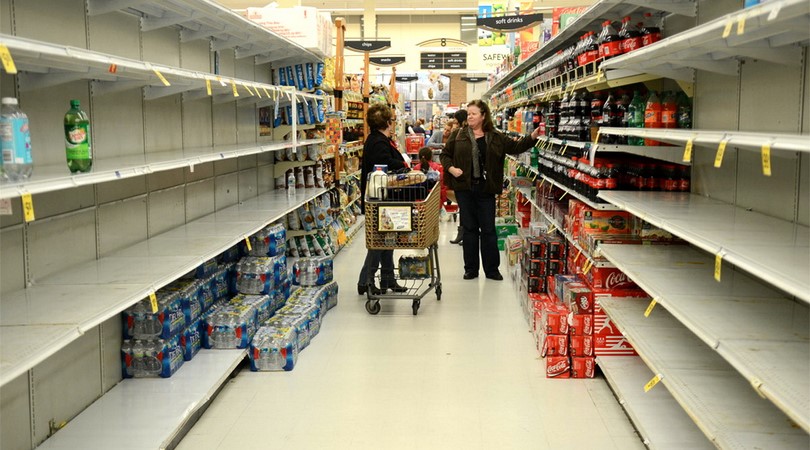
Here is a list of 32 items you should consider putting on your preparedness checklist:
- Canned foods;
- Can opener (to open all those cans);
- Energy bars and snacks;
- Bottled water and juice;
- Coolers for food and drinks;
- Medication (pain reliever, prescriptions, special treatments and so on);
- First aid kit;
- Extra cash (the ATMs might not work on the verge of a powerful storm);
- Batteries;
- Flashlights on batteries;
- Scissors;
- Duct tape (you never know when you need it);
- Personal hygiene products (soap, toothpaste, toothbrush, toilet paper …);
- Fully charged cell phone for communication;
- Extra batteries for your cell phone (the power might be down);
- Radio that runs on batteries;
- Clothes for at least 3 days;
- Blankets;
- Bedding and pillows;
- Fire extinguisher;
- Food for your pet (if you have one) and the pet;
- Diapers (if you have a baby);
- Toys and games for the children to keep them busy during the storm;
- Rope (in case you need it to move fallen trees from the way);
- Small tools that you might need after the storm passes;
- Working shoes to protect your feet from water;
- An extra tank of gas (if you have a car);
- Important papers that you need to protect from getting destroyed;
- Matches and candles (in case the power goes out and you’re left in the dark);
- Plastic garbage bags (even if outside is all the craziness in the world you still have to clean up after yourself inside);
- Heavy gloves (for all the work you’ll have to do after the hurricane passes);
- Rain gear for the entire family (and your pet if you consider it necessary).
It might seem like a big emergency kit but you can divide it among the family members who are strong enough to handle a bag. If you have a car, the transportation should not be a problem and most of the items don’t occupy that much space. Also, if you are concerned about the duration of time canned food can resist, read our real-life examples covered in a previous article.
As you can see, our list also includes items you’ll need after the storm, but if you don’t have the space or the mean of transportation, you can take the absolute basics you need to survive in the shelter.
How to handle pets during a hurricane
You probably noticed that we also included in the hurricane preparedness checklist, pets and their needs. If you don’t own pets you can simply skip over this part and move on to how to protect your house and other assets.
On the other hand, if you are a pet owner, then you know you must take care of its needs too. Your plan for pets can go in three directions:
- Take them to a friend who lives outside the endangered area and can take good care of them
- Leave them with a specialized service or in a pet shelter
- Take them with you
If you decide on one of the first two options you must have a plan prepared. This way you’ll be able to take your pets to safety before the storm even starts. If you want to take your pet with you don’t forget about its needs. Pack food, cat litter, carrier, leash, toys, medication, and anything else you might need. Also don’t forget to check if the shelter you are heading to accepts pets.
A very important rule when you have pets and you are preparing for a hurricane: don’t wait until the last minute to evacuate. If you need to be rescued you might not be able to take your pets with you. Do you really want to let them withhold such a horrible storm?
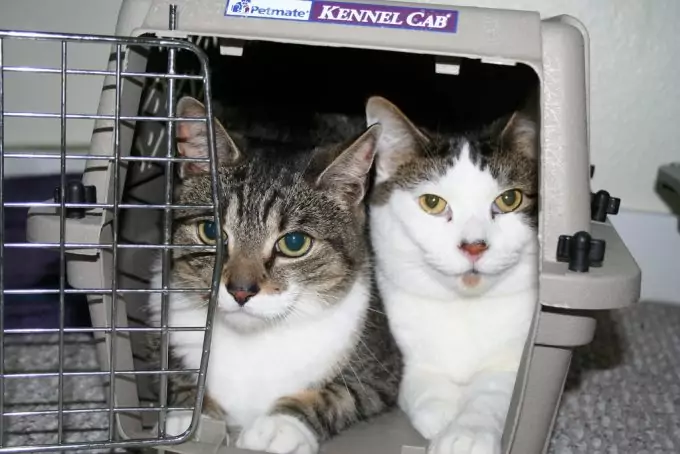
There is always the possibility of separation during a hurricane so make sure that you fasten on your pet’s collar an identification tag with your name and phone number on it. This way whoever finds your pet will be able to return it to its owner.
How to prepare your house
There is one thing that we haven’t yet put on the hurricane preparedness checklist: the house and surroundings. Some storms are so strong that they flatten everything in their way. Still, if you prepare your house the proper way, you might get away with minimal damages.
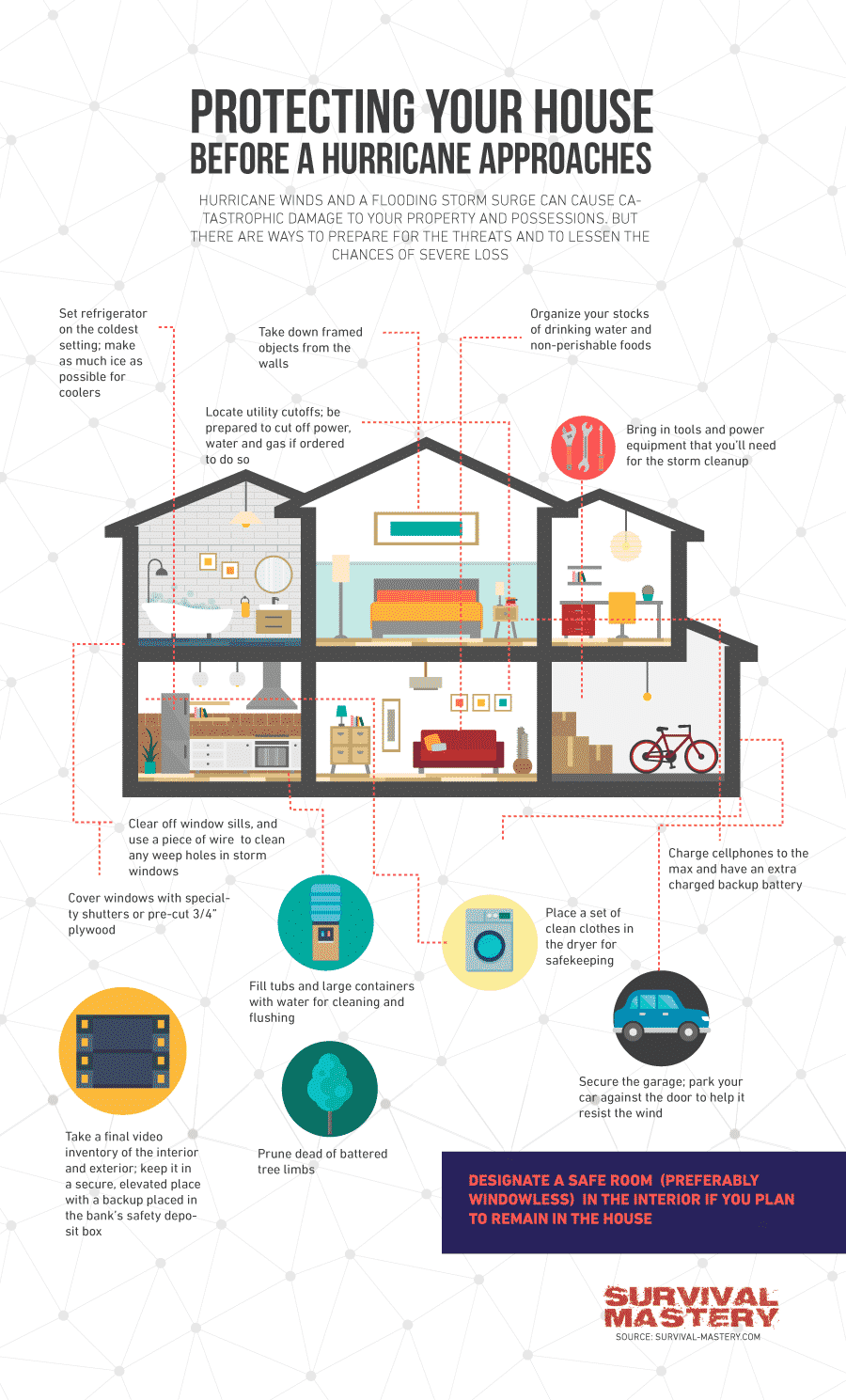
We put together a list with a few basic steps you have to follow as soon as you hear that a hurricane might be coming your way:
- Gather and store in a safe place any item that could be picked up by the wind (tables, patio furniture, swings, and so on). This way you make sure that you’ll still have them after the storm and they won’t end up hurting someone else. On powerful wind even a simple piece of patio furniture can be a fatal projectile.
- Board up big windows and doors that you are not going to use. This way you don’t allow the powerful wind to find weak spots in the house structure. Those that you can’t board up you should reinforce with strong hinges and latches.
- Use hurricane clips to make the roof more wind-resistant.
- Reinforce the garage door and you can use the garage to store the stuff you gathered from outside.
- Unplug any appliances before leaving and make sure that the gas, water, heat, and anything else is turned off.
- Don’t leave windows uncovered. This can be an open invitation to anyone trying to rob houses that are not supervised.
- Clean rain gutters so the water can be evacuated properly.
- Put any of the valuables that remain behind in clean, plastic bags and move them to the highest level of the house. This way they’ll be safe in case of flooding.
To evacuate or not to evacuate?
As Shakespearean this might sound, it may actually be a life and death decision. Our recommendation is: if the authorities say you need to evacuate then you leave as soon as possible. There is no need to put you and your family in danger. Still, surviving in the urban area after a disaster requires knowledge, which you can get in our detailed article about the urban survival mastery guide everyone should know.
If the area you live in is going to be affected by the hurricane but there is no evacuation order, then you need to follow the steps we discussed on “How to prepare your house” section above in order to make sure the wind is not going to disintegrate your house.
Also, establish a safe room in the house, with no windows and just one door where every member of the family can look for shelter in case anything goes bad. Here you should store your hurricane supplies and establish your hurricane preparation center.
A few more precautions you should take in case you decide to stay through a hurricane:
- Fill the bathtub with water to make sure that your water supply is enough for everyone.
- Freeze as much water as you can in the even the power is cut off. This way you will still have fresh water and a cool place to store the food.
- Make sure the way to the attic is not blocked by anything and store a few tools there, just in case of severe flooding.
- Make sure that you are following the news on the radio or on TV. When informed correctly one takes the right decisions.
- Don’t let unsupervised lit candles. The wind may come in, and start a fire while you are in another room.
- At the moment of landfall make sure to stay away from windows and glass doors that might break and harm you or your loved ones.
Remember: staying behind against authority’s advice is not a wise decision. It’s your responsibility if there is an evacuation order and you stay behind hoping that everything will be alright. Rescue might reach your house too late and the only one to blame will be you.
Preparing with the help of technology
Today’s technology is pretty advanced and it would’ve been a surprise if there were no apps regarding hurricane prevention and getting help during one. There is a Hurricane App from The Red Cross available on Google Play and App Store, that allows you to notify people if you are safe or not.
See also: Best Solar Radio: Hands on The Best Solar Radios on The Market
You can also post your location so your loved ones know where you are. This app is very useful in case you get separated during the hurricane and you can’t communicate using traditional ways.
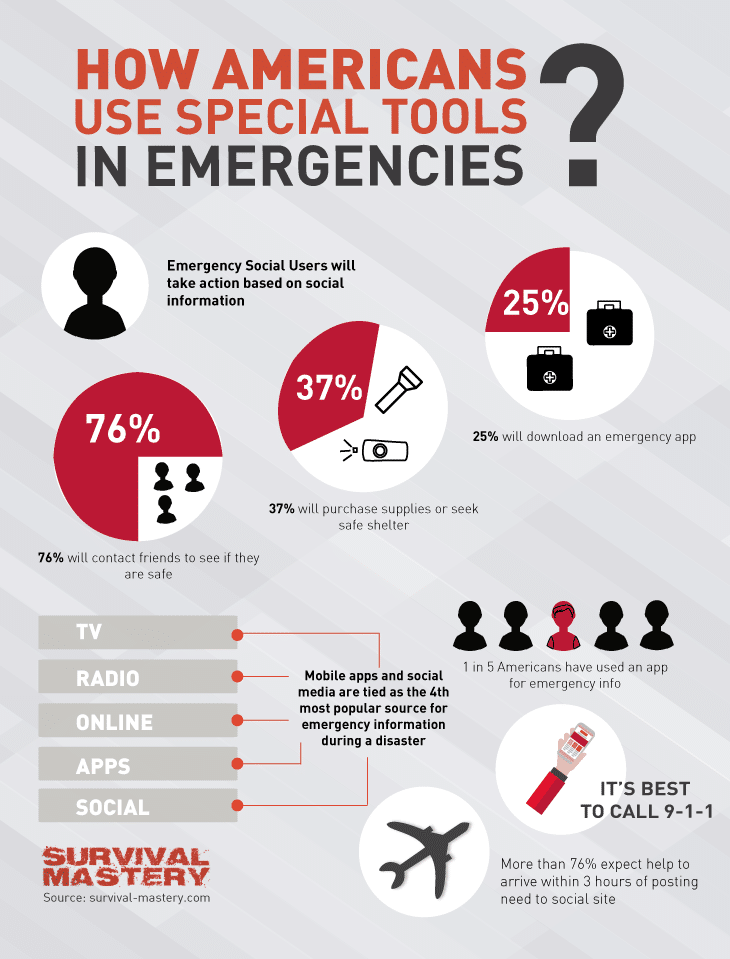
Now, that we’re on the subject, The Red Cross also has a First Aid App for those in need of a helping hand but lacking communication means. Having the possibility to use modern technology during a hurricane is very helpful but if the power goes off this can be useless. That’s why having a preparedness checklist and making an emergency kit before the season starts it’s very important.
Hurricane preparation is not a game
In the end, let’s summarize what we’ve learned about preparing for a hurricane and draw the final conclusions. We saw that hurricanes are not something to ignore in the background until the time comes to face them. They are catastrophic natural events that need to be treated with respect and sometimes with fear.
We need to prepare in advance every member of our family so they won’t lose their calm in a stressful situation (like getting separated from the family during the storm). Also, hurricane supplies are vital for our survival in a hurricane shelter or even in our own house. Because of the powerful winds and heavy rains, hurricanes can produce damages that will affect the natural order of things for days. That’s why having the necessary supplies for a few days is very important.
Preparing the house and surroundings is also extremely important. Powerful hurricanes can produce irreparable damages but if the house is properly reinforced it may have a real chance of facing Mother Nature’s fury.
As you can see, hurricane preparation is not a game; being ready when the weather goes bad is completely your responsibility.




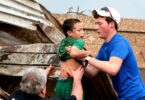

Hurricanes are the worst! I’ve been through few of them, and it was a total nightmare, but I learned few lessons as well. First, I keep a lot of matches and lighters enough for the candles. Second, the laundry, it is paramount to have clean clothes and underwear in that condition, and in case, it extends in time.
Hi Patrick,
You have everything figured out, but you have to take into consideration the dos and don’ts discussed in this article.
Hurricane survivor here.
If it’s not too much trouble, consider other people’s security like how you think about yours, amidst weather disturbance.
– Try not to go driving into overwhelmed areas
– Don’t go strolling about under trees that could fall
– Don’t walk into your overflowed basement that likewise contains your electrical system.
Keep in mind that you are in danger, as well as the individuals who attempt and save you.
Ahmad,
Thank you for the tips. We all take different approaches in preparing for a hurricane, storm or blizzard but this is highly dependent on the weather systems around the area. I like that you think about others as well, as survival is also dependent on how you get along with your neighbor.
David